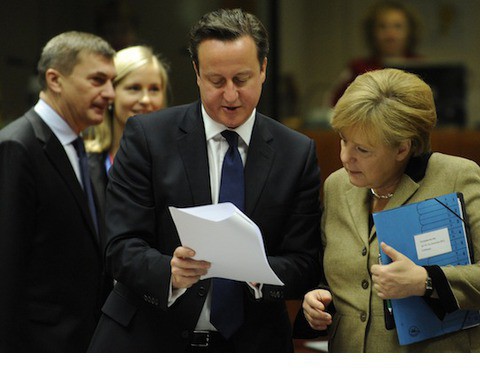| View this email online if it doesn't display correctly |
| | | |
Editorial - The 800th Anniversary of the Magna Carta | |  |
Dear friends,
It isn’t often you get to celebrate the 800th anniversary of something – and I cannot think of any 800th anniversary more significant than the one we enjoyed in June, the 800th year since the signing of the Magna Carta. As you might remember from your school days, this was the moment, in 1215, that King John reluctantly acquiesced to the demands of the disgruntled English barons. The law of the land would no longer rest upon the personal whims of the Crown and his subjects were to be entitled to basic rights and liberties, enshrined by written law. To enforce these rights, rights no monarchy had ever previously agreed to, a form of conciliar rule would be established, triggering our nation’s slow but steady transition from absolutism to representative democracy.
Sadly, as with most of this nation’s great historic feats, Magna Carta has its detractors. Usually found amongst the left-wing commentariat, they dismiss this great charter as little more than the transfer of power from one elite to another, from the Crown to the nobility. They compare their 21st century vision of rights and entitlements against this 13th century gathering of royalty, nobility and the established Church to find the whole thing anachronistic.
They couldn’t be more wrong. Magna Carta is the foundation upon which all our other freedoms are built. And not just ours. When the British Empire was dismantled, it was to Magna Carta that the constitutional drafters of Australia, New Zealand and Canada looked towards for guidance. In the American War of Independence, this 13th century affirmation of liberty by law served to inspire and justify their grievances at the rule of George III.
Indeed, the legacy of Magna Carta in the United States was no more apparent than at the anniversary celebrations at Runnymede, where not only could you hear an American accent everywhere you stepped, but you could also see their dedication to the legacy in the form of a statue they had played a major part in financing. This brings me to my great friend and colleague, Daniel Hannan. Without his tireless efforts across America and the UK in raising both interest and funding, that magnificent statue of Her Majesty the Queen, now standing proudly at Runnymede, would simply not have happened. What he and a small group of determined Runnymede councillors put together in the form of the celebrations was remarkable and I was very proud to be there at the unveiling.
Now you could be forgiven for asking yourself why the anniversary of the curtailment of royal power has been symbolised by building a statue to the current Monarch! However I think the Foreign Secretary (and Runnymede MP) Phillip Hammond explained it best when he said “while John represented arguably the worst of monarchy, Queen Elizabeth II represents undoubtedly the best of monarchy. While John exercised arbitrary power, Queen Elizabeth is the embodiment of the laws that protect our rights. She represents the ultimate refinement of the principle of constitutional monarchy that has served the UK so well.”
Until Magna Carta, royalty was above the law. Instead of maintaining the laws they claimed to represent, they were free to break them. You may be astonished to know, that even today, 800 years after we ended such abuse of power here in England, there is another such elite that maintains its privilege to live above the law - the MEPs of the European Parliament. Were you aware that MEPs have immunity from prosecution? And that only a vote of said MEPs may waive that privilege? Perhaps the actions of those 13th century barons, far from being anachronisms, could actually teach our current representatives a lesson on accountability. And therefore, in the spirit of Magna Carta, I am starting a campaign to end the immunity given to MEPs, starting with my own.
|
| | |  |
At the June Strasbourg plenary, Parliament was scheduled to vote on a much-awaited report regarding the EU-US Trade and Investment Partnership (TTIP), a vitally important extension of free trade which would allow our businesses here in the South East to export freely to the US, without having to struggle with the current regulatory differences and trade barriers. The benefit for the UK is estimated to be worth up to £10 billion annually – that is almost £400 per household. It is a unique opportunity for all nations involved to increase trade, wealth, investment and job creation. And what happened? The vote was postponed, the debate did not happen.
Internal bickering amongst the socialist group of the Parliament, inflamed by their three selfish passions of anti-Americanism, anti-capitalism and anti-globalisation led to the President of the Parliament (himself a Socialist) preventing the vote from taking place
It was bitterly disappointing to see what has already been a painfully slow process grind to a halt yet again. Throughout the negotiations there has been what our group leader Syed Kamall rightly defined as ‘myth-making.’ Alarmist and frankly false claims concocted by the opponents of TTIP include, but are not limited to: the false suggestion that the NHS will be sold off to American healthcare companies; the false suggestion that investor state dispute settlements (ISDS) are a new form of corporatism that will supersede democratic institutions; and the false suggestion that negotiations have been conducted entirely in secret.
MEPs eventually passed this much disputed resolution on the TTIP negotiations, a month later, on 8th July. The move was heralded by much of the Parliament as a victory, and a sign of their influence to come on ensuring protection for investors, the procurement of public services and transparency. A late amendment to the Resolution passed, calling for a fresh system to tackle investor arbitration, in place of the controversial ISDS mechanism.
It remains my hope that we can move forward with a substantive free-trade agreement and not one which succumbs to death by a thousand cuts. However with the US election looming and thus the window for negotiation with the current administration closing, I am concerned that what would have been a rare piece of welcome legislation from the EU will ultimately fall victim to party politics. While not directly involved in the transatlantic negotiations, the European Parliament will have the power to still veto the final deal.
If you do have any queries or concerns about TTIP, then please do contact me at office@nirjdeva.com.
|
| | |  |
Amid considerable uncertainty, rioting on the streets and boarded up banks, the Greek premier, Alexis Tsipras, tiredly surrendered to demands for further, ever more stringent austerity measures, largely dictated by the IMF. An agreed third bailout, totaling 86 billion euros will be made available in the weeks to come, courtesy of the European Stability Mechanism (ESM), set up as the Eurozone rescue fund back in 2012.
It is an agreement that has been heralded by federalists and supporters of greater integration as a signal victory; one that has significantly alleviated, if not solved, the issue of “Grexit.”
I could speak of the high-handed and self-interested manner, in which these debt negotiations were pursued, or indeed the corruption and downright incompetence that spawned them. But, this is not the time for political point scoring. The simple truth is that ordinary people in Greece are suffering. Greek GDP has fallen by 27% (that’s more than the US in the great depression), unemployment is pushing 28%, wages have fallen by 37%, pensions are reduced by 48% and yet the debt ratio has risen to 180% of GDP.
There was never a sound economic case for Greece joining the Eurozone, nor for the Eurozone existing at all. The notion of having a single, rigid, interest and exchange rate across vastly different economies, a one-size-fits-all policy, was never going to work for all involved. Whilst the powerhouses of France and Germany set the rates to their own benefit, the weaker members of the Eurozone were left with little option but to surrender to domestic devaluation. The effects of this are not unique to Greece but remain evident throughout the smaller Eurozone economies.
With the most critical obstacles to debt relief having been overcome, the Syriza-led government surviving a rebellion in Parliament to enact strident reforms on VAT, pensions and early retirement, it seems surprising that so many voices across Europe still decry the deal and continue to call for “Grexit.”
Yet, in reality, Greece has not been normal for many years. There remain valid concerns that a government which does believe in the bailout and grudgingly relied upon opposition MPs to get it through Parliament might not last. Greece’s debts now total some 320 billion Euros and the IMF has warned Eurozone leaders that it would peak at 200% of GDP, far higher than previously anticipated. It is an issue that is unlikely to go anywhere, despite a third bailout, as it requires debt relief "on a scale that would need to go well beyond what has been under consideration to date". (IMF)
For over a month the future of the Eurozone hung very much in doubt. Given the underlying problems to both the Eurozone and the Greek economy, I fear that we have not seen the last of this persisting crisis; not by a long shot.
|
| | Schengen - the failure of Europe | |  |
Last month President Juncker toasted the 30th anniversary of the Schengen agreement. Federalists often cite the creation of a ‘borderless’ European area and the abolition of national border checks as one of its greatest achievements, instead of one of its greatest disasters.
The migrant crisis, both on the shores of the Mediterranean and on the shores of Calais, has tragically highlighted the critically pervasive flaws evident within the Schengen agreement. One of the inspirations for migrants risking life and limb on a boat across the Mediterranean Sea is the belief that once they set foot upon European soil, all of the EU is open to them. In response to this surge, the targeted nations of Italy and France have quietly sought to re-impose a measure of national border control, only to be rebuffed by EU leadership.
Instead of temporary yet appropriate national measures, the crisis - as with the Greek situation – is being used by the EU to validate further power grabs. Calls are already being made for a new EU border guard coupled with a common asylum policy, once more setting national governments and the EU on a collision course. As President Juncker toasts one of Europe’s ‘greatest’ successes, the French courts have ruled their newly imposed national controls on the Italian border as legal, whilst Greek ministers are threatening to freely hand visa’s over to migrants as retribution to the rest of Europe. This is not a success by any stretch of the imagination and Britain is right to remain firmly outside the Schengen agreement.
|
| | |  |
Before the general election EU leaders were very quick and very vocal in dismissing the Prime Minister’s plans for renegotiation. They looked at the polls and felt confident that there was very little chance David Cameron could lead us to a parliamentary majority and thus the in/out referendum would never happen. They were wrong. David Cameron won an absolute majority, the people trusted him and his promise of an In or Out referendum.
As the Referendum bill makes its way through Parliament, David Cameron returns to the negotiating table a winner, with a mandate from the country to seek the best deal for Britain. Already we have witnessed a climb-down from President Juncker and others, who no longer underestimate the Prime Minister’s seriousness or commitment.
Britain’s case for renegotiation can no longer be dismissed as posturing and is now being heard in similar tones to the resounding No given by the Greek people to the European elite's demands of eternal austerity. Suddenly, across European capitals, national leaders are coming to accept that their cherished European Project is unravelling and that unless they listen and understand the demands of the people they purport to serve, the whole edifice will collapse.
Whilst this negotiation phase is taking place, we must afford our full support and assistance to the efforts of the Prime Minister who has already made inroads in gaining a consensus among leaders of similar-minded member-states. We are not alone in our desire for change. Yet whatever may or may not materialise from these negotiations, ultimately the decision will rest with you at the ballot box. I know for years many of you have, like I have, wanted this opportunity. I am delighted that we won this battle and that it was our Party, the Conservative Party that will provide the British people with a say on our future in the EU.
|
| | | | | | I will be back in touch with you again very soon. In the meantime you can check my website www.nirjdeva.com for regular updates and if I can be of any assistance to you on anything raised here or anything else for that matter, please do not hesitate to contact me at nirj.deva@europarl.europa.eu.
|
|
|
|
| | | | | |